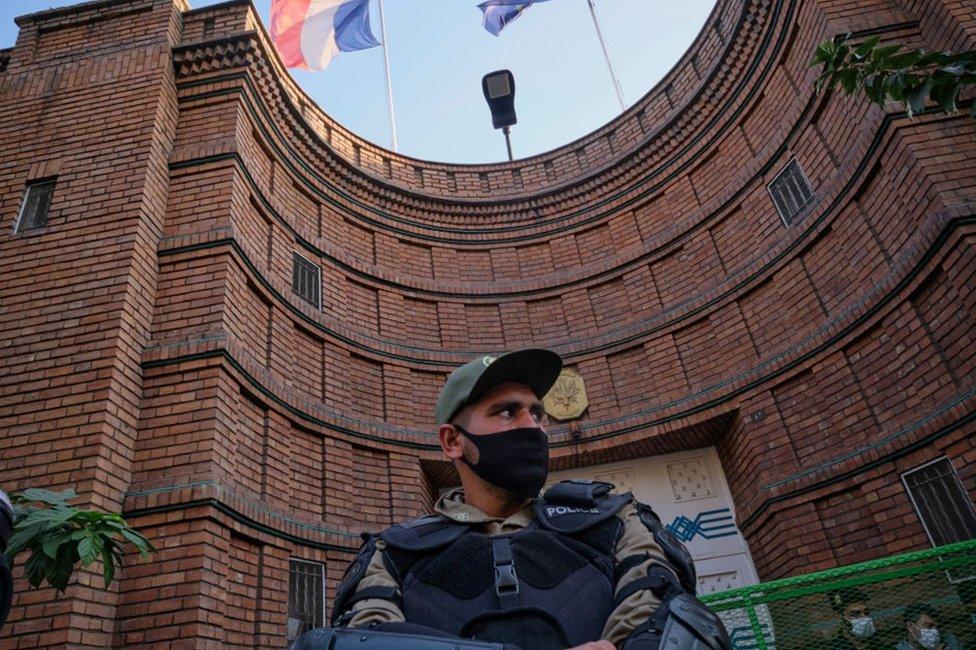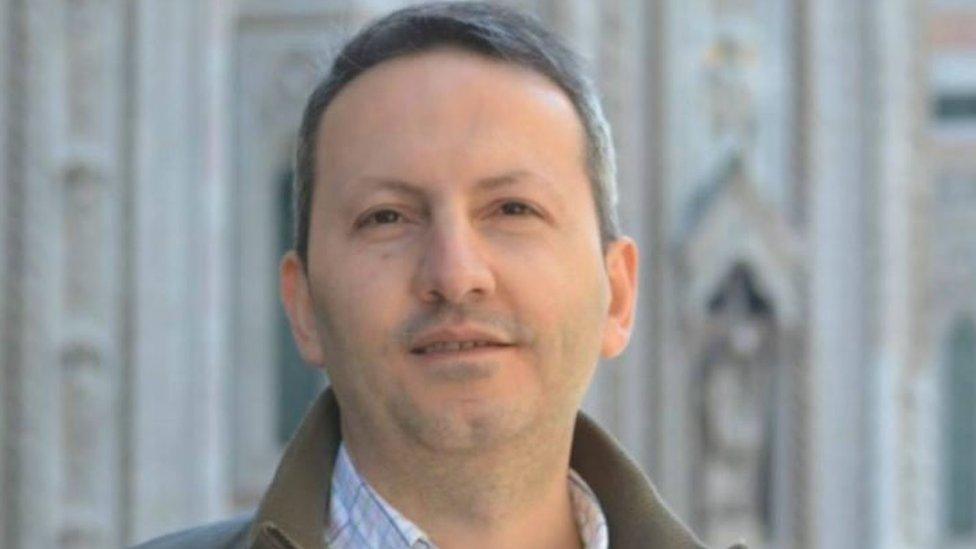France condemns arrest of two citizens in Iran
- Published

France said its ambassador in Tehran was seeking consular access to the arrested citizens
France's foreign ministry has confirmed two of its citizens are being detained in Iran and demanded their release.
"The French government condemns these baseless arrests," a statement said.
It did not identify the pair, but the head of a French education union said an employee and her husband had gone missing while on holiday in Iran.
On Wednesday, the Iranian intelligence ministry said two Europeans had been arrested for planning to cause "chaos, social disorder and instability".
The ministry said they shared the same nationality and alleged that they were "agents" sent to Iran to "take advantage" of protests by teachers and other workers, without providing evidence.
Earlier this month, scores of teachers took to the streets in more than dozen Iranian cities to demand fair wages, better conditions, and the release of colleagues detained ahead of the protests.
France said its ambassador in Tehran was seeking consular access to its citizens and would remain "fully mobilised" until they were released.
Christophe Lalande, federal secretary of France's FNEC FP-FO education union, told Reuters news agency that there was a "strong presumption" that one of its staff and her husband were the two arrested.
The BBC understands that the union official is named Cécile Kohler.
Iranian authorities are believed to have arrested dozens of Western citizens - most of them Iranians with dual nationality - in recent years. Human rights activists have accused the Islamic Republic of using them as bargaining chips in negotiations with the West.
In January, French tourist Benjamin Brière was sentenced to eight years in prison on spying charges after he allegedly photographed "prohibited areas" with a drone.
French-Iranian academic Fariba Adelkhah was forced to return to jail that same month, after just over a year of release on house arrest. She is serving a six-year sentence for conspiring against national security and "propaganda against the establishment".
France said both convictions were politically motivated and had no basis in fact.
Last week, Sweden's foreign ministry confirmed that a Swedish tourist had been arrested while on holiday in Iran.
Iran did not comment on the report, though the judiciary's spokesman did say on Tuesday that the execution of a Swedish-Iranian doctor convicted of espionage was "on the agenda".
Ahmadreza Djalali, an emergency medicine specialist, was arrested during a business trip in 2016 and accused of spying for Israel. He was sentenced to death the following year, after what human rights activists called a grossly unfair trial that relied on "torture-tainted confessions".

You may also be interested in:
I wasn’t prepared for coming home, says former Iranian prisoner Kylie Moore-Gilbert
- Published4 May 2022
